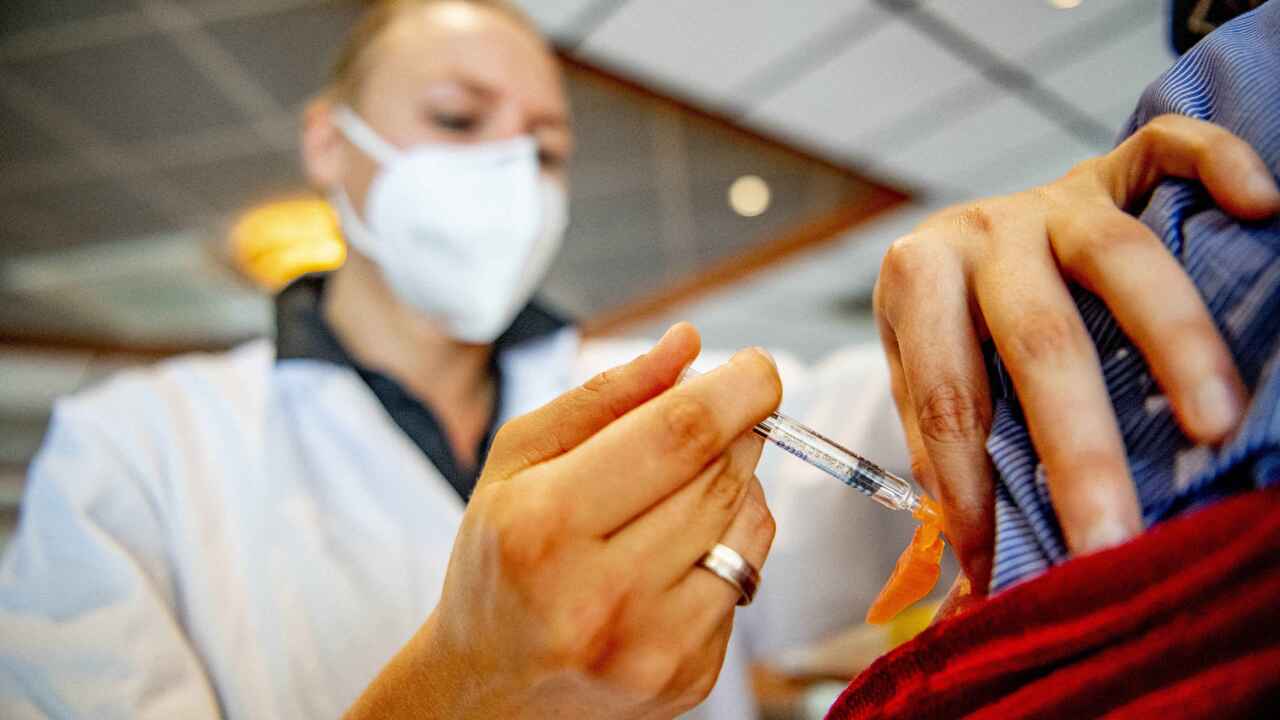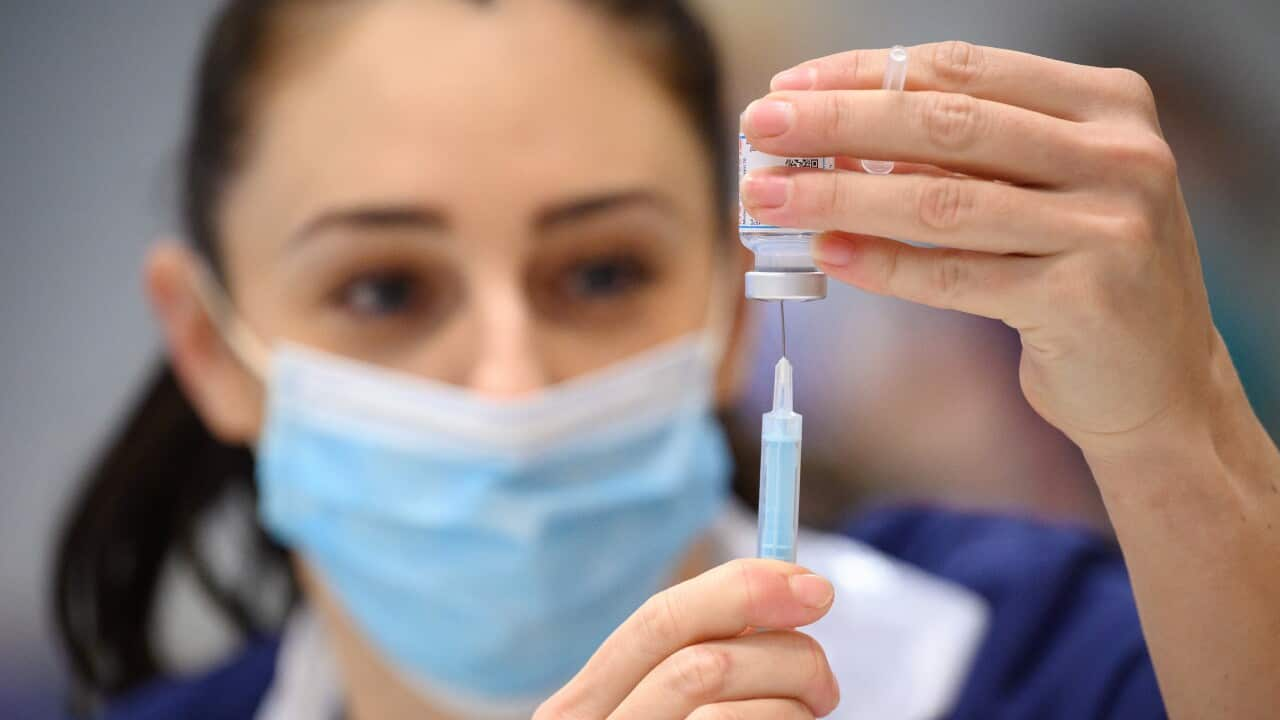KEY POINTS
- XBB.1.16, a new Omicron sub-variant, has made its way to Australia.
- Known as Arcturus, it has a "concerning" mutation but its severity is still being studied.
- Some experts say comprehensive COVID-19 surveillance will track and manage variants as they evolve.
The World Health Organisation has its eye on a new COVID-19 sub-variant that's spreading across the globe.
XBB.1.16, dubbed Arcturus, has been in the spotlight recently amid a surge of cases in India and reports it causes itchy and sticky eyes. Compulsory mask-wearing has been reintroduced in some states across the subcontinent and the Indian government has run drills to test if hospitals are prepared for a possible influx of patients.
Arcturus has also been detected in Australia, but what are its chances of gaining a foothold? Here's what experts say.
What is XBB.1.16, known as 'Arcturus'?
It is an offshoot of Omicron — a COVID-19 variant that has since evolved into different sub-variants, including XBB.1.16.
The World Health Organisation has labelled it a "variant under monitoring", a designation Australia's Department of Health has also applied.
Arcturus is not new. It was first detected in January and has now spread from India to almost 30 countries, including Australia.
What do we know so far about XBB.1.16?
XBB.1.16 cases emerged in Australia earlier this year, according to Catherine Bennett, chair in epidemiology at Victoria's Deakin University.
"It does have a concerning mutation that does seem to make it a little more transmissible," said Paul Griffin, an infectious diseases physician and microbiologist at the University of Queensland.
Professor Griffin said there did not yet appear to be any signs it caused more severe disease, but he stressed that it was still early days — a reality the Department of Health also acknowledges.
"An early pre-print [study] from authors in Japan have suggested XBB.1.16 may have properties conferring high transmissibility and significant immunological evasion," a Department spokesperson told SBS News in a statement. "Further assessment and evaluation of patients infected with ... XBB.1.16 is required for more definite conclusions."
There have also been reports that XBB.1.16 has caused a conjunctivitis-like symptom, but the Department of Health said more research was needed to determine whether it was a defining feature of the variant.
"Further follow-up is needed to determine whether this observation is associated with an actual increase in incidence of conjunctivitis compared to previous variants," the spokesperson said.
Could XBB.1.16 cases surge in Australia?
Some 219 Arcturus cases have been reported across Australia, according to the Department of Health. But it admits this is likely to be "an underestimate".
Professor Bennett said XBB and are currently the dominant variants circulating in Australia, but it's not certain whether XBB.1.16 will rise to that position.
"Sometimes you end up with a particular variant hitting a younger population and it ends up circulating socially and through work," Professor Bennett said. "And if one particular variant gets in there early and really establishes infections, you'll find that will then drive a lot of the infections because that part of the population becomes the accelerator."
How effective our existing immunity is, based on prior infection and vaccine coverage, is also likely to determine whether it spreads rapidly, Professor Bennett said.
"The variants that start to take off are those that can evade an immune response," she said.
She said there were little signs that XBB.1.16 was causing more severe disease among Australian COVID-19 cases at this stage.
"The genomics data that is recorded is now biased to more severe cases because they are taking it off people who've had PCR tests and not rapid antigen tests, so they're samples collected for diagnostic purposes," she said. "It might be that XBB.1.16 is starting to take off in the community... but it's not being reflected in the more severe cases."
Do we need to ramp up surveillance?
During the height of the pandemic, Australian jurisdictions were carrying out wastewater testing, and PCR testing was more accessible, Professor Griffin said.
He wants to see a return to this.
"While I appreciate we need to be judicious with our resources... testing is still fundamental to managing usual viruses, let alone one that is still technically causing a pandemic," he said.
"Finding cases is important so we can understand where transmission is happening... and look at what variants and sub-variants are circulating... and to know how our vaccines are working."
Professor Bennett is also supportive of comprehensive surveillance, particularly in hospitals where she said it's important to delineate patients who are there with COVID-19 because of the disease.
"The hospital numbers might go up but that might be because your background rates are higher," she said.
"There might be more people going in for another reason that happen to have COVID just because it's more common in the community.
"That's very different from if the number of people in hospital because of COVID was to double; that tells you you've got a more severe variant."












